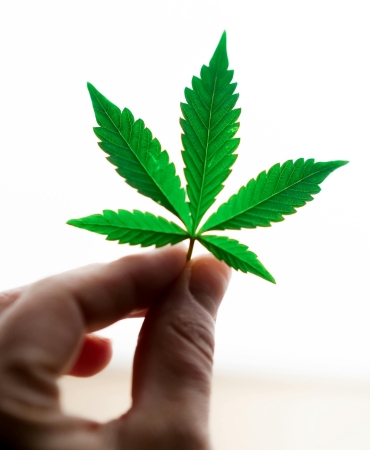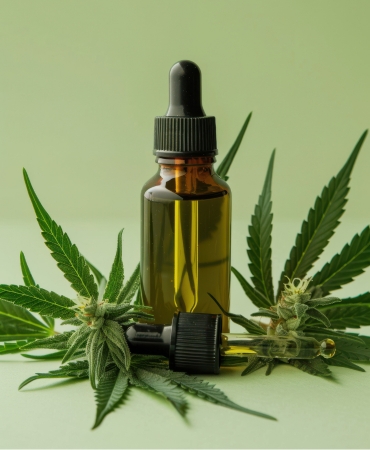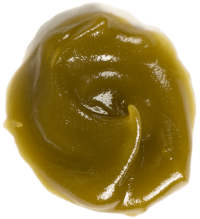

Best Natural Remedies That Relaxes Muscles Quickly and Effectively
Need quick relief? Discover the best natural remedies that relaxes muscles quickly and effectively, helping you feel at ease in no time!
Muscle tension and discomfort are common issues that many of us face daily. In fact, chronic pain affects approximately 19% of adults over 18 in Europe, impacting their quality of life. To address this, exploring natural remedies that relax muscles can be both effective and quick. These methods not only alleviate pain but also improve overall muscle function. By incorporating such approaches into your routine, you can find relief without relying solely on medications.
Why do Muscles Tighten and Cause Discomfort?
Muscle tightness happens when muscle groups contract and fail to relax properly. This can lead to pain management issues, affecting mobility and daily activities. Several factors contribute to contracted muscles, making movement uncomfortable. Understanding these causes helps in finding the right approach for relief.
Common Causes of Muscle Tightness and Discomfort
-
Poor Blood Flow – When circulation is restricted, muscle pain and tightness can increase. This is common in people who sit for long periods or don’t move enough.
-
Nutrient Deficiencies – Low levels of essential minerals, like those found in magnesium supplements, can trigger muscle fatigue and tension.
-
Overuse and Strain – Excessive physical activity or repetitive movements can cause one muscle group to tighten, leading to discomfort.
-
Stress and Anxiety – Emotional tension can create physical stress, resulting in contracted muscles and stiffness.
-
Medical Conditions – Certain conditions like pain management disorders or chronic inflammation can worsen muscle discomfort.
Proper care, movement, and targeted treatment can reduce tightness and improve muscle function.
How Natural Remedies help Compared to Medications?
Natural remedies provide an effective way to manage muscle cramps, pain, and tightness without the risks that often come with medications. While muscle relaxants are widely used, they can cause adverse effects and serious side effects when taken long-term. Understanding the benefits of natural solutions can help you make informed choices for pain management and recovery.
1. Fewer Side Effects
Unlike prescription muscle relaxants, natural treatments minimize the risk of adverse effects and dependency. Many conventional medications affect body functions beyond just relaxing muscles, leading to complications.
-
Natural options like anti-inflammatory herbs work without disrupting internal systems.
-
Studies in clinical trials and animal studies suggest that some natural compounds are effective with fewer negative outcomes.
2. Non-Addictive
Many prescription drugs come with the risk of addiction or withdrawal symptoms, making long-term use challenging. Natural remedies provide relief without these risks.
-
Complementary and alternative medicine methods, such as herbal treatments, work with the body’s natural processes.
-
Research in medical science highlights the benefits of non-addictive pain relief methods.
3. Supports Long-Term Muscle Health
Medications may provide short-term relief but often do not address the underlying cause of muscle cramps and discomfort. Natural approaches focus on improving muscle function over time.
-
Regular use of clin pharm ther-approved natural supplements can help improve next muscle group recovery.
-
Techniques like transcutaneous electrical nerve stimulation may be helpful in reducing chronic tension without medication.
4. Improves Overall Well-Being
Medications often target symptoms rather than improving overall well-being. Natural solutions can provide lasting benefits.
-
Practices like stretching and complementary and alternative medicine improve circulation and mobility.
-
Holistic approaches, including proper nutrition, can help relieve pain and prevent recurring issues.
5. Cost-Effective
Many medications require ongoing prescriptions, making them expensive over time. Natural remedies, such as agric food chem-based supplements, offer an affordable alternative.
-
Certain medical science-backed herbal solutions provide relief at a fraction of the cost.
-
Simple techniques like tai chi and meditation reduce reliance on expensive treatments.
6. Enhances Recovery Naturally
Rather than masking pain, natural remedies help the body gradually work towards healing. This approach ensures long-term benefits without harmful drug interactions.
-
J athl train research suggests that herbal treatments improve post-exercise recovery.
-
Perceived pain levels decrease with natural techniques like transcutaneous electrical nerve stimulation and tai chi.
Using natural methods for pain management helps in avoiding risk factors associated with medications. Consulting a healthcare professional ensures safe and effective treatment choices. Whether through herbs, movement therapies, or alternative medicine, natural solutions provide a balanced way to treat pain while supporting overall health.
Best Natural Remedies to Stop Muscle Spasms Quickly
(Alt txt - Best Natural Remedies to Stop Muscle Spasms Quickly)
Muscle spasms can occur suddenly, causing discomfort and restricting movement. They often result from dehydration, nutrient deficiencies, or muscle strain. Instead of relying on medications, natural remedies can help ease spasms and support muscle function. Below are some effective ways to relax muscles and prevent recurring spasms.
1. Magnesium-Rich Foods
Magnesium is essential for muscle relaxation and helps prevent spasms. A deficiency in this mineral can lead to frequent muscle cramps and discomfort. Adding magnesium-rich foods to your diet can support overall muscle health.
Foods High in Magnesium
-
Dark leafy greens like spinach and kale
-
Nuts and seeds, including almonds and pumpkin seeds
-
Whole grains such as quinoa and brown rice
-
Dark chocolate, which contains a good amount of magnesium
2. Herbal Remedies
Certain herbs have natural muscle-relaxing properties, making them a great alternative to synthetic muscle relaxants. They help relieve spasms and support recovery.
Herbs That Help Relax Muscles
-
Chamomile contains antioxidants that may help ease muscle contractions
-
Valerian root is known for its calming effects on the nervous system
-
Turmeric has anti-inflammatory properties that reduce muscle tension
-
Ginger may help improve circulation and ease stiffness
3. Hydration and Electrolytes
Lack of hydration is a major trigger for muscle spasms. Maintaining proper fluid levels and electrolyte balance is essential for muscle function and cramp prevention.
Hydration Tips for Muscle Health
-
Drink enough water throughout the day to prevent dehydration
-
Consume electrolyte-rich foods like bananas and avocados
-
Coconut water is a natural source of potassium and magnesium
-
Limit caffeine and alcohol, as they can deplete electrolytes
4. Essential Oils
Essential oils provide a natural way to reduce muscle soreness and tension. When massaged into the skin, they promote relaxation and improve circulation.
Best Essential Oils for Muscle Relief
-
Lavender oil has calming properties and helps ease spasms
-
Peppermint oil provides a cooling effect and reduces muscle tightness
-
Eucalyptus oil supports circulation and relieves discomfort
-
Rosemary oil may help with muscle fatigue and relaxation
5. Heat and Cold Therapy
Temperature therapy is a simple yet effective way to relieve spasms. It helps improve circulation and reduce inflammation.
When to Use Heat or Cold
-
Heat therapy relaxes tight muscles and increases blood flow
-
Cold therapy numbs the area and reduces swelling
-
Alternating between heat and cold can help treat spasms effectively
-
Warm baths with Epsom salt can also ease muscle tension
6. Massage Therapy
Massage therapy is one of the best ways to release muscle tension and prevent spasms. It also helps improve relaxation and recovery.
Massage Techniques for Muscle Spasms
-
Deep tissue massage targets knots and tight areas
-
Foam rolling helps loosen stiff muscles and prevent spasms
-
Acupressure can provide relief by targeting pressure points
-
Massaging with essential oils enhances relaxation
7. Deep Breathing Techniques
Controlled breathing can help manage stress-related muscle tension. It encourages relaxation and supports better muscle function.
Breathing Techniques for Relaxation
-
Diaphragmatic breathing reduces tension and promotes oxygen flow
-
Slow, deep breaths before bed help prevent nighttime spasms
-
Practicing breathing exercises daily supports nervous system balance
-
Helps both adults and child nervous systems stay calm
Naturally Support Muscle Relaxation with Hempbuti -
Incorporating hemp-based products into your routine can effectively support muscle relaxation and overall well-being. Here are some recommendations:
1. Virgin Cold Pressed Hemp Seed Oil
-
Rich in essential fatty acids, this oil supports muscle health and reduces inflammation. Incorporate it into your diet or apply it topically to areas prone to muscle spasms.
2. Hemp Hearts
-
Packed with magnesium and protein, hemp hearts promote muscle function and prevent cramps. Sprinkle them on salads, smoothies, or yogurt for a nutritious boost.
-
High in fiber and nutrients, hemp seed flour aids in muscle recovery and overall health. Use it as a substitute for regular flour in baking or cooking to enhance your meals.
Explore these products and more at Hempbuti's Food & Dietary Supplement section to naturally manage and prevent muscle spasms.
How to Prevent Frequent Muscle Spasms?
Muscle spasms can be painful and disruptive, but certain lifestyle habits can help reduce their frequency. By taking the right precautions, you can support muscle function and minimize discomfort. Below are practical steps to prevent recurring muscle spasms naturally.
1. Balanced Diet for Muscle Health
A nutrient-rich diet is essential for keeping muscles healthy and preventing spasms. Proper nutrition ensures muscles function optimally.
-
Include foods high in potassium, calcium, and magnesium.
-
Stay hydrated to support electrolyte balance.
-
Avoid excessive caffeine and processed foods that may deplete nutrients.
2. Regular Exercise Routine
Consistent physical activity strengthens muscles and reduces the risk of spasms. It also improves flexibility and circulation.
-
Focus on strength training and flexibility exercises.
-
Engage in low-impact activities like walking or cycling.
-
Stretch regularly to maintain muscle elasticity.
3. Proper Posture and Ergonomics
Maintaining good posture prevents unnecessary muscle strain, especially during work or daily activities.
-
Keep your back straight while sitting for long hours.
-
Adjust your workspace to reduce muscle tension.
-
Avoid slouching, as it puts extra pressure on muscles.
4. Gradual Warm-Ups and Cool-Downs
Warming up before exercise and cooling down afterward helps prevent muscle tightness and sudden cramps.
-
Perform dynamic stretches before workouts.
-
End exercises with gentle stretching to relax muscles.
-
Avoid sudden, intense physical activity without preparation.
5. Consistent Sleep Schedule
Lack of sleep can increase muscle fatigue and tension, making spasms more likely. Establishing a regular sleep pattern can help.
-
Set a fixed bedtime and wake-up time.
-
Reduce screen time before bed to improve sleep quality.
-
If you struggle to fall asleep, try relaxation techniques like deep breathing.
6. Avoiding Overuse and Strain
Overworking muscles without rest can cause spasms. Proper recovery time is essential for muscle health.
-
Take breaks during repetitive physical activities.
-
Avoid excessive weight lifting or prolonged standing.
-
Listen to your body and rest when needed.
7. Monitoring Medication Side Effects
Some medications may contribute to muscle spasms as a side effect. Being aware of their impact can help prevent issues.
-
Read about potential side effects before starting a new prescription.
-
Discuss concerns with a doctor if muscle spasms become frequent.
-
Some studies in j agric food chem suggest certain natural supplements can help counteract medication-induced muscle tension.
By incorporating these habits, you can significantly reduce muscle spasms and support long-term muscle health. Small changes in daily routines can make a big difference in keeping muscles relaxed and functional.
How to Ease Muscle Soreness Without Medication?
Muscle soreness can make daily activities uncomfortable, but natural methods can help relieve it without the need for medication. Simple lifestyle changes and alternative treatments can support recovery and reduce discomfort effectively.
Cold Water Immersion
-
Soaking in cold water can help reduce inflammation in sore muscles.
-
Ice baths or cold showers are commonly used by athletes to speed up recovery.
Herbal Compress Therapy
-
Warm herbal compresses made from ginger or turmeric can help ease soreness.
-
These ingredients contain natural compounds that provide relief and reduce stiffness.
Acupressure for Muscle Relief
-
Applying pressure to specific muscle points can help relax tight areas.
-
This method stimulates circulation and encourages faster healing.
Foam Rolling for Recovery
-
Rolling sore muscles on a foam roller can improve flexibility.
-
It helps break up tension and promotes better muscle function.
By incorporating these natural remedies, you can manage soreness effectively. Listening to your body and recognizing early signs of muscle strain can prevent discomfort from lingering.
How to Relieve Neck Pain by Relaxing Muscles?
Neck pain can make it hard to focus or go about daily activities. Simple relaxation techniques can help ease tightness and improve movement.
Apply Warm Compress
-
A warm towel or heating pad can loosen tight neck muscles.
-
Heat increases blood flow and helps muscles relax.
Mindful Head Tilts
-
Slowly tilt your head from side to side and hold for a few seconds.
-
This gentle movement releases tension without straining the neck.
Gentle Shoulder Rolls
-
Rolling your shoulders backward and forward helps ease stiffness.
-
It also reduces tension that builds up from poor posture.
Taking breaks, keeping good posture, and staying relaxed can help prevent neck pain from returning.
Do Natural Remedies Have Drug Interactions?
Natural remedies can interact with certain medications, sometimes making them less effective or causing unwanted effects. Some herbs, like St. John’s Wort, can interfere with antidepressants, while others, such as garlic and ginseng, may thin the blood and increase the risk of bleeding when taken with blood thinners. Even common supplements, like high-dose vitamin K, can reduce the effectiveness of blood-thinning medications.
These interactions happen because some natural ingredients affect how the body absorbs or processes medicine. Certain supplements may change liver function, altering how quickly a drug breaks down. Before combining natural remedies with medication, it’s best to consult a doctor to ensure they are safe to use together.
Are Over the Counter Muscle Relaxers Better Than Natural Remedies?
Over-the-counter muscle relaxers work quickly, but they may come with side effects like drowsiness or dizziness. They mainly target symptoms rather than addressing the root cause of muscle tightness. While they can be helpful for short-term relief, relying on them too often may not be ideal.
Natural remedies, like stretching, heat therapy, and certain herbs, focus on long-term muscle health. They help the body recover without the risk of dependency or side effects. Choosing between the two depends on the situation—OTC muscle relaxers provide quick relief, while natural remedies support overall muscle relaxation and recovery.
How Does Progressive Muscle Relaxation Works?
Progressive Muscle Relaxation (PMR) is a simple technique that helps release tension by tightening and then relaxing different muscle groups. It works by bringing awareness to how muscles feel when they are tense versus when they are relaxed, helping the body learn to let go of stress more easily.
The process starts by focusing on one muscle group at a time, such as the hands or shoulders, squeezing them tightly for a few seconds, and then slowly letting the tension fade. This method improves muscle control, reduces physical discomfort, and calms the mind. Regular practice can help with better sleep, lower stress, and improved muscle flexibility.
PMR is often used before bedtime or during stressful moments to ease tightness and promote relaxation. It’s an effective way to improve body awareness and prevent unnecessary strain on muscles throughout the day.
Which Relaxation Techniques Relaxes Muscles the Best?
Relaxing muscles helps reduce tension, improve flexibility, and promote overall well-being. Here are some of the best relaxation techniques that effectively ease muscle tightness.
1. Progressive Muscle Relaxation
-
Tense and release each muscle group one by one.
-
Increases body awareness and relieves built-up tension.
2. Deep Breathing Exercises
-
Slow, controlled breaths send more oxygen to muscles.
-
Helps calm the nervous system and ease muscle stiffness.
3. Meditation and Mindfulness
-
Encourages the body to let go of stress.
-
Focusing on breath or sensations signals muscles to relax.
4. Yoga and Stretching
-
Gently lengthens tight muscles and improves flexibility.
-
Regular practice prevents stiffness and enhances movement.
5. Autogenic Training
-
Uses self-suggestion to create warmth and relaxation in the body.
-
Helps muscles release tension without physical effort.
6. Biofeedback Therapy
-
Trains the body to control muscle tension using relaxation techniques.
-
Adjusts breathing and posture to reduce stress on muscles.
7. Tai Chi and Qigong
-
Involves slow, controlled movements to improve circulation.
-
Reduces stiffness and enhances muscle coordination.
8. Guided Imagery and Visualization
-
Uses mental images to relax muscles and reduce discomfort.
-
Picturing warmth or a peaceful scene helps ease tension.
Practicing these techniques regularly can lead to better muscle function, flexibility, and overall relaxation.
Conclusion
Taking care of your muscles doesn’t always mean relying on medications. Simple changes like staying active, eating the right foods, and using relaxation techniques can help keep muscles relaxed and pain-free. Whether it’s stretching, deep breathing, or trying natural remedies, there are plenty of ways to ease discomfort without side effects.
It’s all about finding what works best for your body and making it a part of your routine. If muscle tension or soreness becomes frequent, paying attention to daily habits can make a real difference in feeling better and staying comfortable.





























